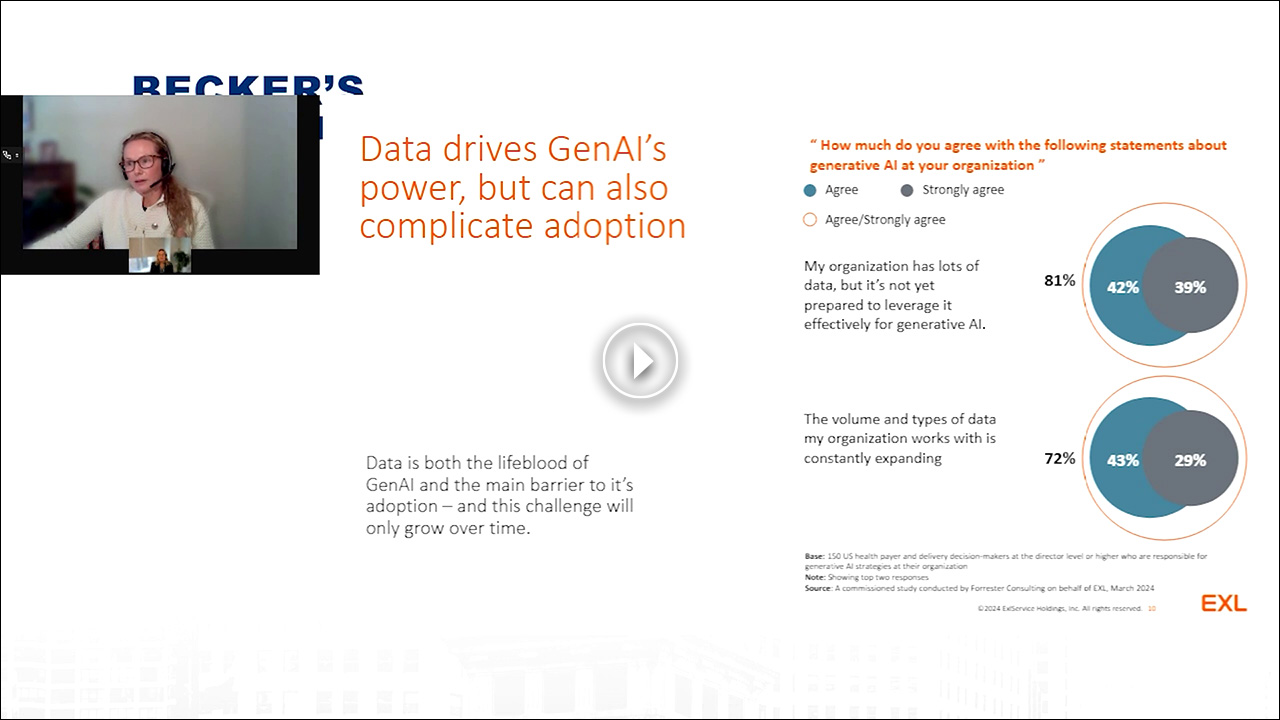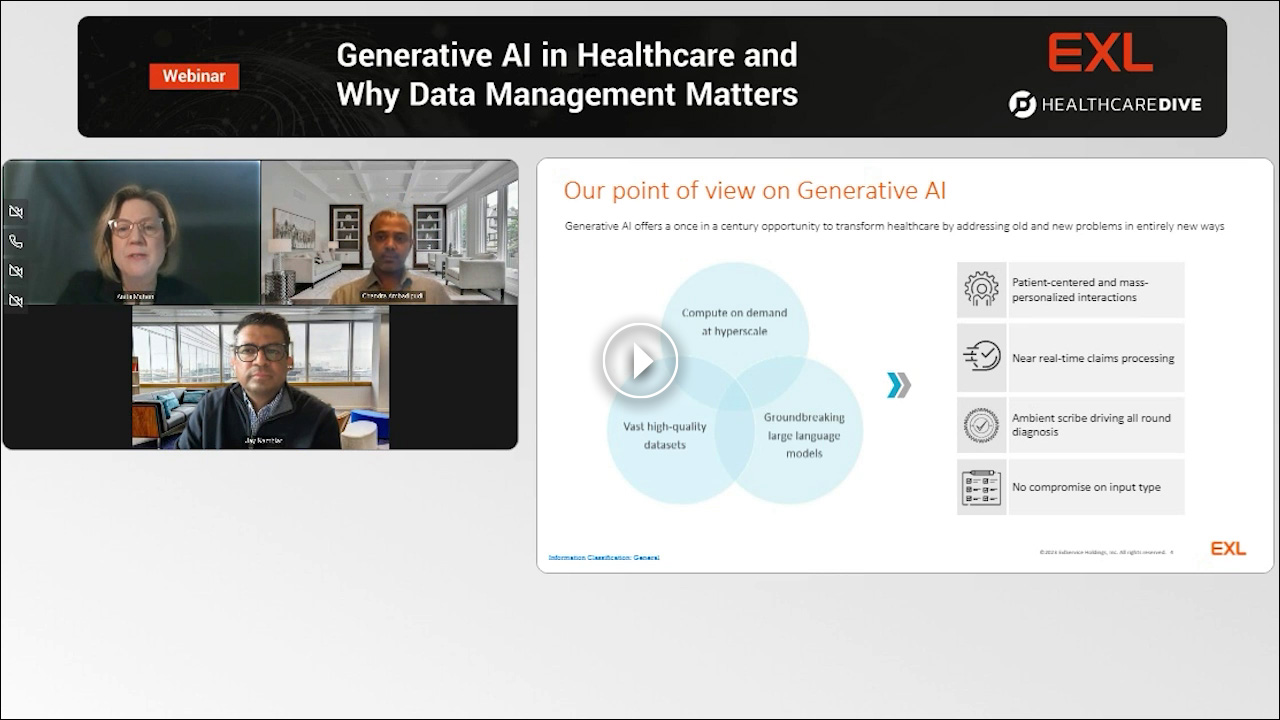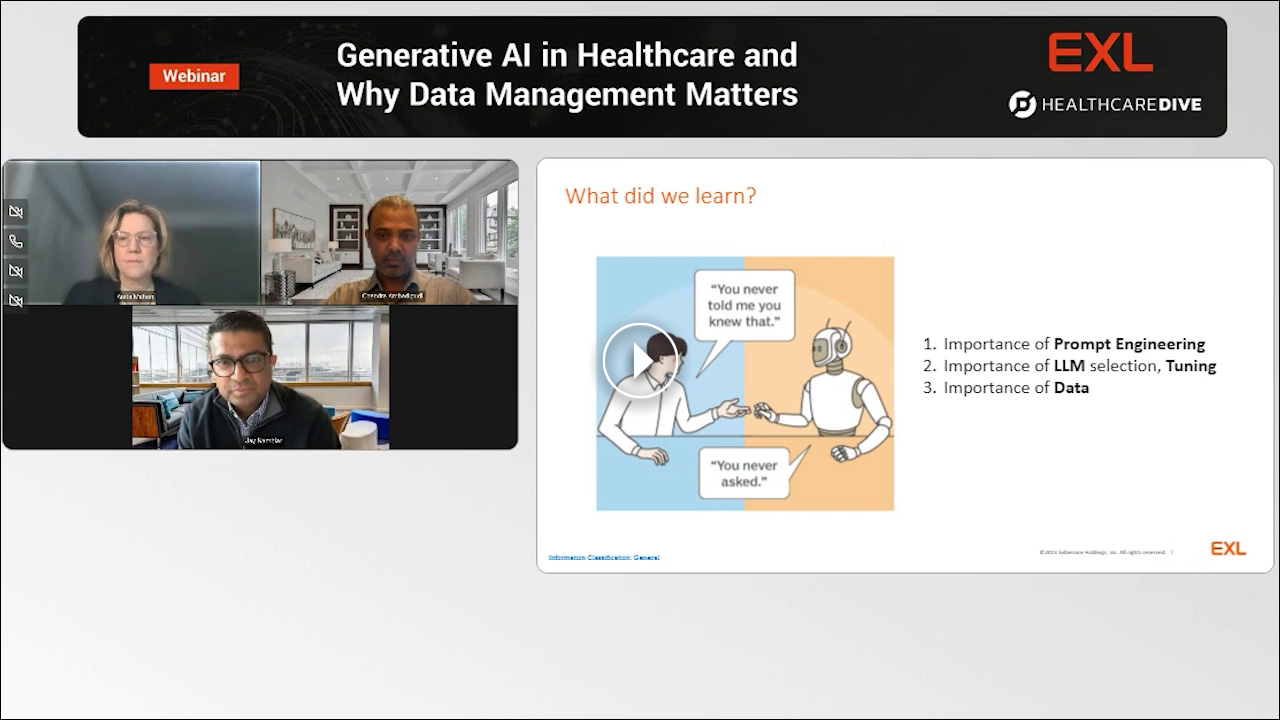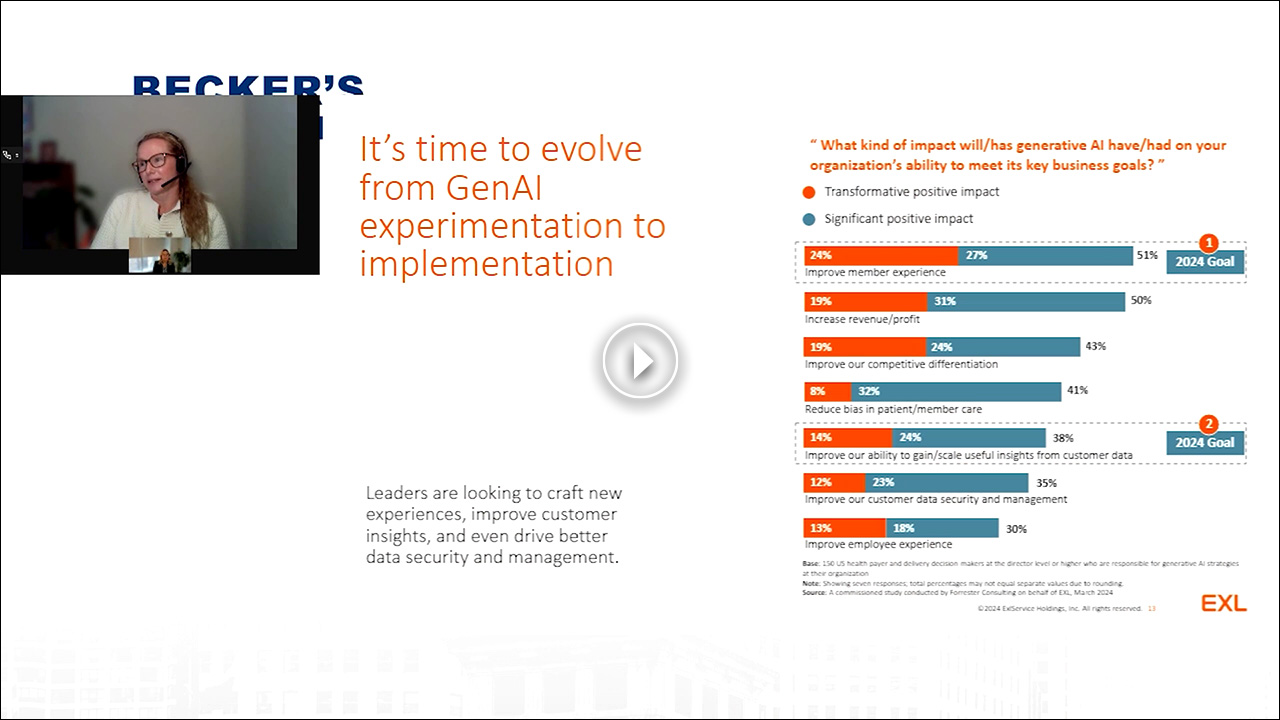The implementation of cloud technology and the ability to use data at scale has been generating value in enterprises. Now, adding generative AI to this mix creates a catalyst to dramatically boost productivity and lower costs by assisting human interactions with automation.
In healthcare, generative AI (genAI) can create novel experiences, empower organizations to derive meaning and insights from data, and fuel innovation.
AI-driven technology is not just a side project anymore
Today’s data-led digital solutions, based on natural language processing and speech recognition, can handle complexities in medical records, contract language, documents, and policies. Unlike prior chatbots and other digital point solutions, generative AI technology is transformative because it unlocks the power of unstructured data to summarize massive amounts of data and create new, original content.
Generative AI presents unprecedented opportunities for payers and providers to streamline their workflows, transform healthcare delivery, enhance the patient experience, and drive operational efficiency.
However, many healthcare organizations are stuck conducting small-scale genAI experiments. The question becomes how to shift to a scalable, strategic, sustainable approach.
The reality: Generative AI is a priority, but challenges persist
It's clear that generative AI is at the forefront of healthcare innovation. An EXL-commissioned research report produced by Forrester found that 77% of healthcare firms rank genAI as a high or top priority this year. Additionally, 67% plan on ramping up investments in the next two years.
Responses also showed that healthcare organizations struggle with developing a long-term generative AI strategy. A staggering 64% find it difficult to set a clear path forward due to the technology’s rapid evolution. This gap between aspiration and implementation is where our expertise comes in.
Empowering healthcare leaders: A strategic roadmap for genAI adoption
EXL can partner with you to turn your genAI vision into reality. Together, we can:
Control costs: Utilize generative AI reduce administrative costs by up to 75% for clinical management, claims processing and payments, contact center, and business services.
Enhance experiences: Improve employee, provider and member satisfaction by up to 10% across marketing and sales, clinical management, claims processing and payments, customer service and provider network and contracting.
Manage medical expenses: Generative AI that fuses cloud-based big data infrastructure with advanced compute powers, enables payers to uncover and recover a greater share of overpayments, while minimizing false positive claims that impact provider relations negatively.
Solidify your data foundation
Data is the lifeblood of generative AI, yet 52% of firms cite an inadequate data strategy as a significant barrier. While 81% acknowledge they have vast amounts of data, the challenge lies in effectively harnessing it. Moreover, with 72% of organizations dealing with constantly expanding data types and volumes, the complexity can be overwhelming.
Our solution? Reinforce your data foundation with robust, scalable generative AI data management strategies that evolve with your needs. Let's demystify your data and turn it into actionable insights.
A safe path to AI for healthcare
With the rapid advancement of AI and genAI technologies and the emergence of several promising real-world applications, the following criteria are key to building trust in the technology.
- Understand the unique use cases and stringent data security and privacy requirements in the specific healthcare setting where the technology will be deployed. Plus address the detailed nuances of how this information will be used by the organization.
- For any AI-powered healthcare analytics to be accurate enough to provide meaningful insights, they must be populated with robust de-identified data. However, to avoid the risk of reidentification or breach of privacy when using that data in a large language model (LLM), it is important to implement an array of risk mitigation strategies.
- Role-based access control in multiple layers of AI applications
- Fine-grained authorization for vector databases
- Protected health information (PHI) and personally identifiable information (PII) encryption in vector database metadata
- Mask PHI/PII before sending to an LLM (large language model) as context
- Host the LLMs behind firewalls, generating safe responses using prompt engineering
- Fine-tune the open-source LLM to classify prompts and responses as safe or unsafe
- Use of secure retrieval augmented generation (RAG) architecture to prevent hallucinations
- AI-supported decisions in healthcare must be transparent and explainable to ensure trust and facilitate informed decision-making by healthcare providers. This is critical to understanding AI behavior, identifying errors, and ensuring compliance with regulatory standards.
This technology needs to be accessible, affordable, and able to evolve and grow as innovative technology is developed and as new challenges emerge.
Partnership for progress
Navigating the AI landscape requires more than just technology—it demands the right partnerships. We understand that 46% of decision-makers are seeking help with tech and data management, while 41% need partners with top-notch AI/data governance expertise. Additionally, 37% require deep compliance and regulatory knowledge.
EXL is your partner in progress. We bring world-class technical capabilities, unparalleled data governance skills, and comprehensive compliance know-how to the table. Together, we can accelerate generative AI adoption responsibly and effectively.
Ready to transform?
The future of health care is here, and it starts with a strategic approach to generative AI. Download our latest research report from Forrester to uncover actionable insights and practical strategies that can propel your organization forward. Let's unlock the full potential of generative AI in healthcare , together.
Looking for more insights?
Our webinar on generative AI in healthcare and why data management matters explore genAI trends in more details.







